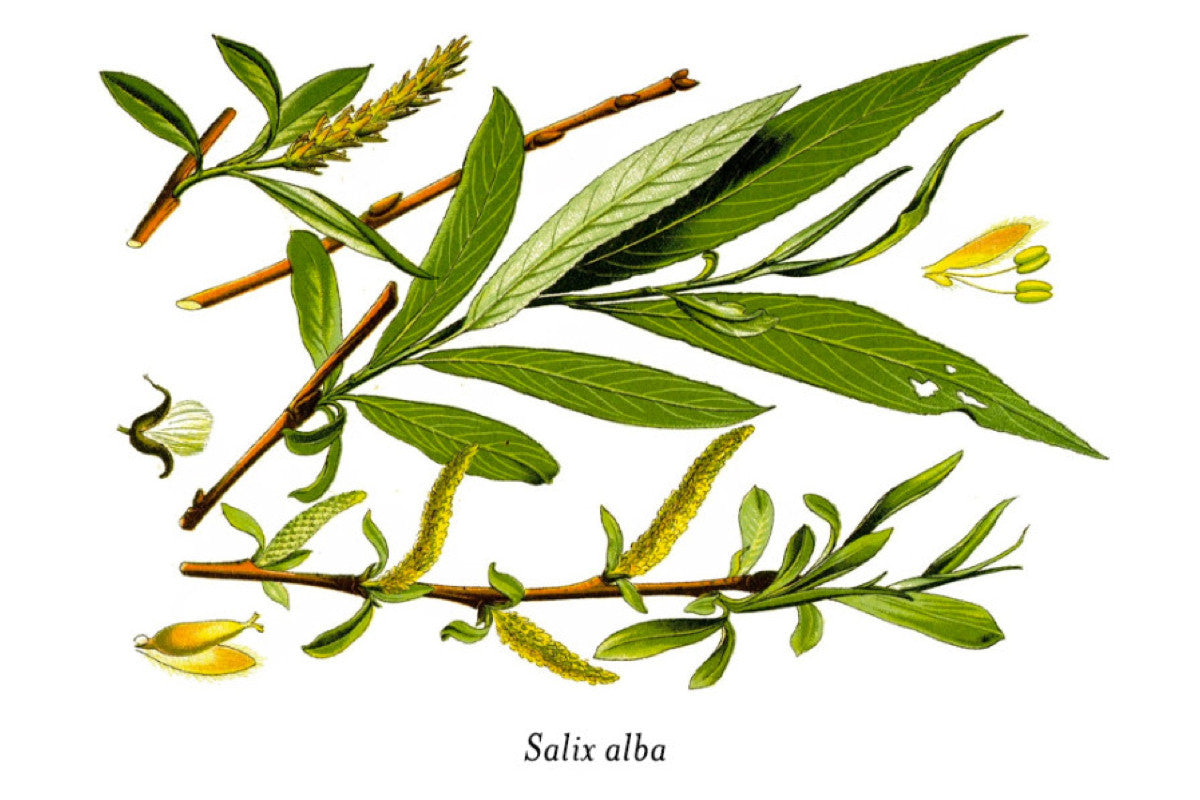Read Time: 2-3 Minutes
This Versatile Ingredient Protects & Soothes for a Healthier, More Radiant Complexion

Derived from the bark of the willow tree, Willow Bark Extract has been used for centuries to soothe irritated skin. Containing salicin—from which salicylic acid is derived—this versatile ingredient is both anti-inflammatory and antibacterial, clearing pores and alleviating acne and irritation. In this installation of our ongoing “Ingredient Spotlight” series, we’ll be focusing on the benefits of Willow Bark Extract in skin care.
Let’s start with an overview of Willow Bark Extract—what it is and how it’s derived.
Although there are various types of willow trees, each with their own unique extracts, Willow Bark Extract used in skin care products is usually derived from white willow bark. As the nomenclature implies, white extract comes from the white willow tree (salix alba), a medium- to large-sized perennial deciduous species. (Black and white willow extract are frequently used interchangeably in beauty products, but for our purposes, we’ll be focusing on the salicin-rich white willow extract.) After harvesting, during which strips of the willow bark are removed from the tree, the inner bark is processed to remove the beneficial aqueous extract. Aside from skin care, this extract can also be used for various medicinal and minor-pain-relieving purposes.
What’s in Willow Bark Extract that makes it so beneficial for the skin?
In addition to salicin, Willow Bark Extract is also high in tannins, phenolic acids, flavonoids, and various minerals, all of which help soothe the skin and aid in cell regeneration, allowing for a more youthful, refreshed complexion. Below, we’ve broken down the major ingredients to delve more thoroughly into their unique benefits.
- Salicin — Named after the willow tree genus itself, salix, salicin has excellent anti-inflammatory properties. (It’s used in Aspirin for this reason to help reduce swelling and minor pains.) In skin care, salicin alleviates acne and irritation and is suitable for most skin types. Salicin’s anti-inflammatory effects have also been shown to diminish wrinkles, reduce the appearance of pores, and even out skin tone while promoting increased firmness. A natural exfoliant, salicin sloughs off dead skin cells and clears pores to reveal a more radiant, clear complexion. Although extremely effective, Salicin is gentle and non-irritating, making it safe for nearly all skin types. Popular skin care ingredient salicylic acid is the metabolized derivative of salicin.
- Polyphenols — Phytonutrients (nutrients found in plants) with high antioxidant activity, polyphenols help our bodies—and therefore our skin—fight free radicals that damage our skin’s DNA and contribute to signs of aging. Polyphenols also aid in moisture retention, allowing our skin to stay hydrated and healthy. These powerful nutrients even help protect against photodamage, protecting our skin during sun exposure and minimizing inflammation afterward. Polyphenols’ anti-inflammatory and antibacterial properties also help diminish acne and provide relief from skin conditions such as eczema, rosacea, and psoriasis.
- Tannins — Willow Bark Extract also contains tannins, organic substances found in bark and other plant-based tissue. Tannins are highly astringent, which means they shrink or constrict body tissue, including the skin’s. Frequently used in toners and other skin care products, tannins tighten pores, making them appear smaller and less obvious; this helps the skin retain a firm, youthful look. Tannins also help control excess oil, which may alleviate acne.
- Flavonoids — A type of polyphenol, flavonoids are high in antioxidant properties, making them excellent anti-agers. Fighting free radicals, flavonoids help diminish the appearance of wrinkles and fine lines. They’re also effective in protecting the skin’s barrier from environmental damage, such as UV exposure, and thereby preventing DNA damage. Flavonoids have even been shown to inhibit photo damage after UV exposure.
So how will Willow Bark Extract benefit my skin?
- Provides gentle exfoliation for more radiant skin
- Helps reduce acne and excess oil
- Helps reduce signs of aging and the appearance of wrinkles
- Refines pores and smoother look of skin
- Helps alleviate conditions such as psoriasis, eczema, and rosacea
- Keeps skin looking firm and youthful
To reap the benefits of Willow Bark Extract, try incorporating our Anarose Hydrating Rose Toner into your daily beauty routine. pH-balancing and gentle enough for even the most sensitive skin, the Willow Bark Extract in Anarose promotes healthy cell turnover while clearing pores and evening out skin tone. Also containing Goji Berry Extract, this gentle toner helps reduce free radical damage and diminish signs of aging, while a floral complex derived from Pale Rose, Jasmine, and Daisy Extracts soothes and softens your skin.









